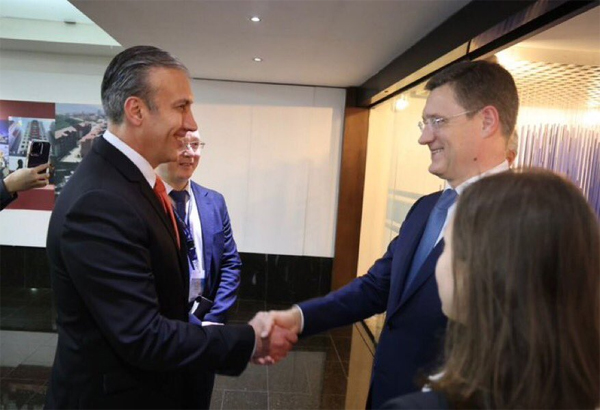
Reporting by Deisy Buitrago, Reuters
CARACAS
EnergiesNet.com 12 15 2022
Russian Deputy Prime Minister Alexander Novak met on Wednesday with Venezuela’s oil minister in Caracas, where they discussed oil market volatility and the status of Venezuela’s outstanding debts to Russia.
Novak, who is also in charge of Moscow’s ties with the Organization of the Petroleum Exporting Countries (OPEC), visited as part of an inter-governmental commission, which is held regularly, a Novak spokesperson said earlier.
“We underline the importance of keep working together to stabilize the international energy market within the framework of OPEC+ and the Gas Exporting Countries Forum,” Novak said through a translator in a broadcast speech following his meeting with Venezuelan oil minister Tareck El Aissami.
“Oil- and gas-producing countries are the solid keystone of our trade and financial cooperation, which continues showing its resilience despite sanctions and pressure on Russia and Venezuela,” Novak said
Moscow is negotiating a debt restructuring deal with Venezuela, Russian agency Interfax said on Wednesday, citing an official from Russia’s finance ministry. The possible adoption of Russia’s Mir card payment system in Venezuela was also discussed, Tass news agency said.
The Mir card is accepted in Cuba, South Korea, Turkey, Vietnam and a handful of former Soviet republics.
Venezuela owes billions of dollars to China and Russia from loans extended under late President Hugo Chavez. U.S. sanctions on the South American country and an acute economic crisis under President Nicolas Maduro have made it difficult to honor the loans, payments to bondholders and other creditors.
The two countries signed a total of 11 agreements covering everything from medicine supply to oil well services, Venezuela’s oil ministry said in a statement.
Venezuela holds the world’s largest reserves of crude and is a member of the OPEC group of leading global oil producers. Maduro is an ally of Kremlin chief Vladimir Putin.
Europe introduced an embargo on purchases of seaborne Russian oil starting this month, trying to cripple Moscow’s military efforts in Ukraine. The United States imposed its own ban on Russia-sourced oil in March, while Moscow has increased its energy supplies – a key source of revenues for its state coffers – to Asia.
Venezuela has been under U.S. oil trading sanctions since 2019, but in November the U.S. Treasury Department issued a license to Chevron (CVX.N) to expand operations in Venezuela, part of Washington’s moves to encourage talks between Maduro and the opposition toward an election in 2023.
Reporting by Deisy Buitrago in Caracas; Editing by Rosalba O’Brien
reuters.com 12 14 2022











